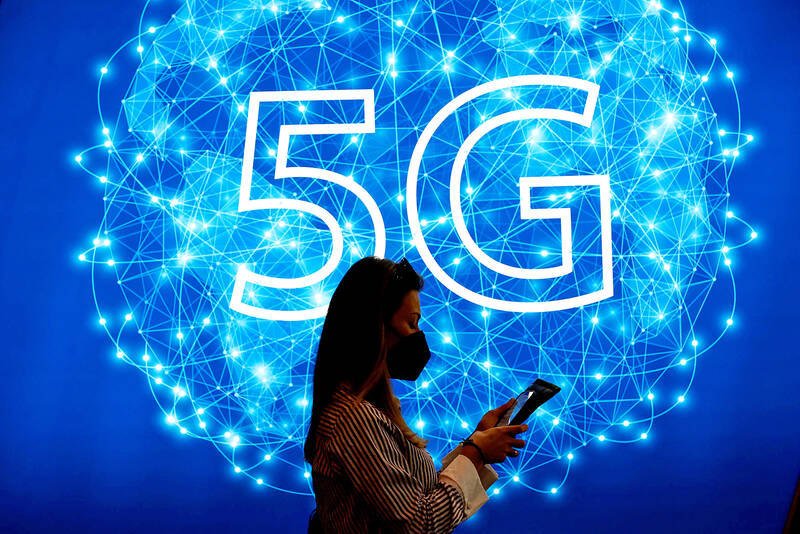Nokia Oyj signed a new multi-year cross-license patent agreement with Samsung Electronics Co that enables the handset maker to use Nokia’s technology in its products.
The deal follows the expiry of a previous agreement at the end of last year, and covers fundamental inventions in 5G and other technologies, the Finnish company said in a statement yesterday. Samsung would make payments to Nokia beginning Jan. 1, Nokia said, without disclosing further details of the deal, saying the terms are confidential.
“We are delighted to have reached an amicable agreement,” Nokia Technologies president Jenni Lukander said. “The agreement gives both companies the freedom to innovate, and reflects the strength of Nokia’s patent portfolio, decades-long investments in R&D and contributions to cellular standards and other technologies.”

Photo: Reuters
At Nokia, licensing has grown more important over the past decade since it stopped making phones and focused on networking gear and intellectual property. It continues to rely heavily on royalties from its inventions used in the global smartphone market, but has in recent years begun to branch out to other sources of intellectual property revenue.
Last month, Nokia extended a patent licensing deal with Huawei Technologies Co (華為), and is yet to come to an agreement with two other Chinese phone makers, Oppo Mobile Telecommunications Corp (歐珀) and Vivo Communication Technology Co (維沃).

Intel Corp chief executive officer Lip-Bu Tan (陳立武) is expected to meet with Taiwanese suppliers next month in conjunction with the opening of the Computex Taipei trade show, supply chain sources said on Monday. The visit, the first for Tan to Taiwan since assuming his new post last month, would be aimed at enhancing Intel’s ties with suppliers in Taiwan as he attempts to help turn around the struggling US chipmaker, the sources said. Tan is to hold a banquet to celebrate Intel’s 40-year presence in Taiwan before Computex opens on May 20 and invite dozens of Taiwanese suppliers to exchange views

Application-specific integrated circuit designer Faraday Technology Corp (智原) yesterday said that although revenue this quarter would decline 30 percent from last quarter, it retained its full-year forecast of revenue growth of 100 percent. The company attributed the quarterly drop to a slowdown in customers’ production of chips using Faraday’s advanced packaging technology. The company is still confident about its revenue growth this year, given its strong “design-win” — or the projects it won to help customers design their chips, Faraday president Steve Wang (王國雍) told an online earnings conference. “The design-win this year is better than we expected. We believe we will win

Chizuko Kimura has become the first female sushi chef in the world to win a Michelin star, fulfilling a promise she made to her dying husband to continue his legacy. The 54-year-old Japanese chef regained the Michelin star her late husband, Shunei Kimura, won three years ago for their Sushi Shunei restaurant in Paris. For Shunei Kimura, the star was a dream come true. However, the joy was short-lived. He died from cancer just three months later in June 2022. He was 65. The following year, the restaurant in the heart of Montmartre lost its star rating. Chizuko Kimura insisted that the new star is still down

While China’s leaders use their economic and political might to fight US President Donald Trump’s trade war “to the end,” its army of social media soldiers are embarking on a more humorous campaign online. Trump’s tariff blitz has seen Washington and Beijing impose eye-watering duties on imports from the other, fanning a standoff between the economic superpowers that has sparked global recession fears and sent markets into a tailspin. Trump says his policy is a response to years of being “ripped off” by other countries and aims to bring manufacturing to the US, forcing companies to employ US workers. However, China’s online warriors